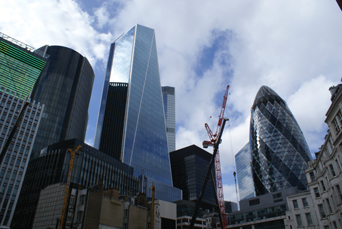
Security and preparedness need to be built into London’s fabric and effective protection against terrorist attack must be a city-wide endeavour, concluded Lord Toby Harris in a second review of London’s preparedness for a terrorist attack and implications of the covid-19 pandemic for the capital’s immediate and long-term preparedness.
Lord Harris has made 294 recommendations; covering funding of the emergency services and equipment; specialist training for teams to deal with types of attacks, and improving information sharing, given the shared responsibility of countering terrorism, including by businesses and civil society.
He said in a foreword to the report: “My broad conclusion is that very substantial progress has been made by the emergency services and other agencies in response to my 2016 report and in following up the lessons of the attacks in 2017 and subsequently. I have been impressed by much of the work that has gone on, and in the detail and care that has been devoted to analysing what happened in the attacks on Westminster Bridge, on London Bridge, at Finsbury Park, at Parsons Green, at Fishmongers Hall, in Streatham and, of course, at Manchester Arena.”
He went on to say that London bears the highest risk of terrorism in the UK, ‘containing as it does the largest number of high-profile targets and the greatest concentration of subjects of interest. I do not believe that this is always adequately recognised in the national allocation of resources’. While acknowledging the recent rise in police number under the Boris Johnson Conservative Government, he said this will mean ‘a disproportionately high number of officers with limited experience’ and a shortage of detectives.
The London Ambulance Service is particularly stretched, he wrote. However, many services, especially those in local government, are essential in preventing terrorism and ensuring preparedness. “Ten years of austerity has left youth provision, mental health services, and the voluntary and community sector under-resourced – in some cases woefully so. The consequences of further cuts will be to leave the network that enables society to respond to those who need support to avoid falling into violent extremism, and to respond effectively and rapidly to an emergency incident, spread worryingly thin.”
Background
In July, the Mayor of London, Sadiq Khan, commissioned the Labour peer Lord Harris to review of London’s preparedness for a terrorist attack. The backdrop; the changing nature of the threat of terrorism including online extremism, more referrals to the UK authorities’ Prevent programmes for concerns of extreme right-wing radicalisation, more people self-radicalising online and a possibility of hostile state-sponsored acts.
Lord Harris’s first review was commissioned by the Mayor in 2016. Over the last six months, Lord Harris has had over 100 interviews with the emergency services, the transport sector, City Hall, and local government, besides with civil servants from several central government departments, the Speaker of the House of Commons Sir Lindsay Hoyle, and Parliament’s Director of Security.

